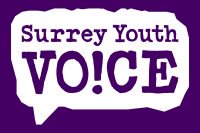Introduction
In 2019, the fostering charity The Child and Adolescent Trust (TACT) produced a national document called 'Language that cares'. Care-experienced children and young people attending participation groups facilitated by Surrey Youth Voice reviewed this document and co-produced a Surrey resource in 2021.
More young people in Surrey reviewed the full document again in 2023, adding in new suggestions and some helpful quotes. This resource has been designed to support professionals and other adults working with and supporting care-experienced children and young people.
View the full list of alternatives for young people's preferred terminology
The most important piece of feedback received during this work was that every child and young person is unique and will prefer different language. Conversations around preferred terminology should be ongoing, and young people have told us they would like to be asked what they prefer.
Watch our video about the importance of preferred language for care experienced children.
Hear from Kathryn, our Practice Auditor
Preferred terminology examples
Not using the acronyms of Looked After Child (LAC) and Child Looked After (CLA)
Young people have told us they prefer the use of the terms care-experienced, care leaver and looked after child. Young people do not think workers should shorten these, particularly LAC as they feel this can have a negative meaning.
Use the term Family Time and Seeing Family
Young people have told us that they do not like the term Contact and workers should ask them what alternative they would like to be used.
Use [Young Person's Name] Plan instead of LAC Review and planning or plan for the future instead of Pathway Plan
Young people have told us they do not like it when workers use the acronym of LAC to describe them or parts of their care. Where possible, the young persons name should be used when speaking to them or about them.
Young people has said that these reviews and plans are about their lives and they would like them to mean something more personal.
Use catch up or session instead of LAC visit
Similar to the point above, young people have told us that the LAC should not be used.

